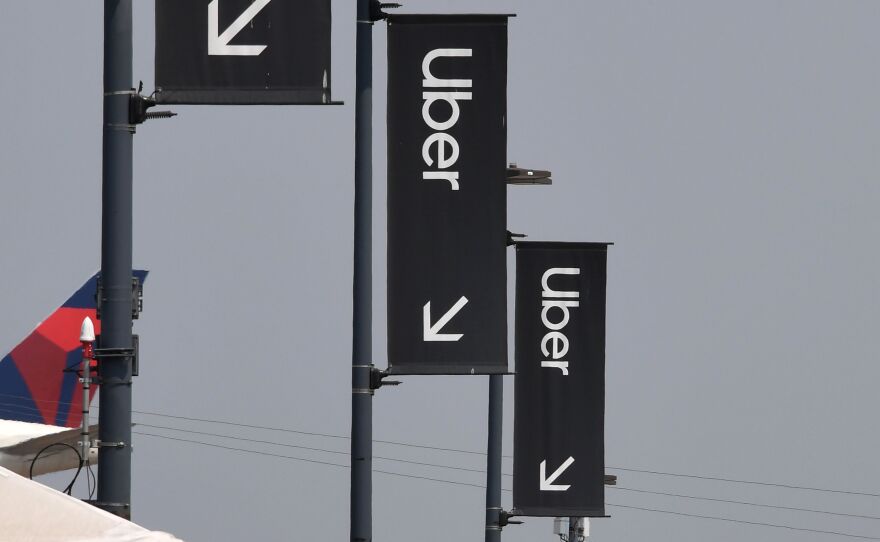A California appeals court says Uber and Lyft must classify their drivers as employees rather than independent contractors, siding with a lower court that found the ride-hailing companies were likely violating state labor law.
The ruling is a blow to Uber and Lyft, which argue that the law does not apply to them. Both companies previously threatened to leave the state if forced to make their drivers employees.
But there's time, because the California law remains effectively on hold for Lyft and Uber. The appeals court on Thursday ordered the ride-sharing companies to reclassify drivers, but not for at least 30 days after the case is sent back to the trial court. Before then, the companies can appeal to the California Supreme Court.
Uber, Lyft and allies spend nearly $200 million on ballot measure
In the meantime, California voters may decide on the law's future because it's on the November ballot. A measure backed by the companies, Proposition 22, would allow ride-hailing and food delivery apps to keep their drivers as independent contractors.
Together with other app companies, Uber and Lyft have poured nearly $200 million into promoting the measure, blitzing drivers and voters with messages and making it the most expensive ballot campaign in state history. A University of California, Berkeley poll released in late September found 39% of likely voters supported the measure, 36% opposed it, and a quarter were undecided.
"This ruling makes it more urgent than ever for voters to stand with drivers and vote yes on Prop. 22," said Lyft spokesperson Julie Wood on Thursday.
"Today's ruling means that if the voters don't say Yes on Proposition 22, rideshare drivers will be prevented from continuing to work as independent contractors, putting hundreds of thousands of Californians out of work and likely shutting down ridesharing throughout much of the state," said Uber spokesperson Matt Kallman.
Both companies said they are considering their legal options.
State and cities say law gives workers labor protections
The state of California and the cities of San Francisco, San Diego and Los Angeles sued Uber and Lyft in May to force them to comply with the state law, which gives gig workers more labor protections, such as access to employer-sponsored health insurance, overtime pay and paid sick leave. The lawsuit says the companies could be on the hook for "hundreds of millions of dollars" in penalties and restitution to drivers.
Uber and Lyft maintain that the law does not apply to them, saying they are not transportation businesses but tech platforms. They say converting drivers to employees would mean they would employ far fewer drivers in California.
In August, a trial court judge ruled that there was an "overwhelming likelihood" that the government would win its case, and ordered Uber and Lyft to comply while the trial continued. Thursday's ruling upheld that order.
"Californians have fought long and hard for paycheck and benefit protections. Uber and Lyft have used their muscle and clout to resist treating their drivers as workers entitled to those paycheck and benefit protections," said California Attorney General Xavier Becerra on Thursday.
San Francisco City Attorney Dennis Herrera also welcomed the appeals court's ruling, saying: "This decision makes it abundantly clear that Uber and Lyft have been breaking the law for years. The only thing 'radical' and 'unprecedented' is the scope of Uber and Lyft's misconduct. This is a victory for the people of California and for every driver who has been denied fair wages, paid sick days, and other benefits by these companies."
Editor's note: Uber and Lyft are among NPR's financial supporters.
Copyright 2020 NPR. To see more, visit https://www.npr.org.






